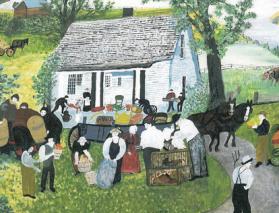A few reflections on Barth’s discussion of the Trinity in Church Dogmatics 1.1, ch 10. 1) Barth insists that Trinitarian theology developed not as a qualification of monotheism but as a way of defending monotheism: “Christian monotheism was and is also and precisely the point also and precisely in the Church doctrine of the Trinity as such.” Barth’s emphasis on God’s self-revelation and self-impartation helps us see how this is so. God is the Revealer, the Revelation, and the One who brings... Read more




















